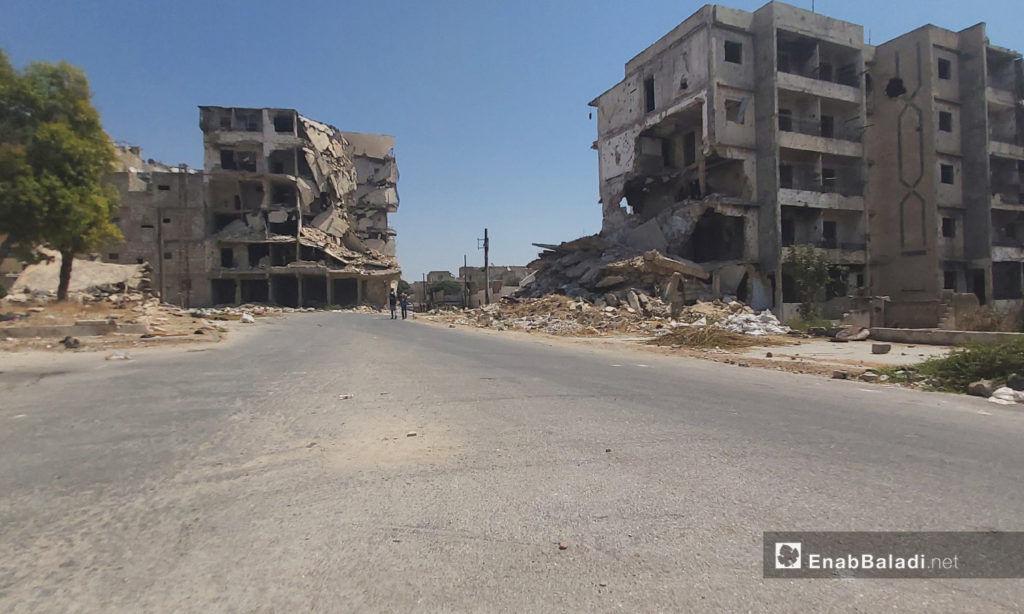The Minister of Public Works and Housing in the Syrian government, Suhail Abdul Latif, has stressed the need for setting a time-bound program to prepare Aleppo city’s detailed plans following the completion of its regulatory plan.
During a meeting with Aleppo city council and the studies company preparing the plan, on 26 November, Abdul Latif said that the plans being designed would “shape the city’s urban identity, keep pace with the architectural development and meet the needs of citizens.”
The head of the Aleppo city council, Maad al-Madlaji, talked about the stages that the certified and uncertified detailed plans have reached, and the areas not included by detailed studies. He also addressed the real estate development areas and informal settlement areas.
Al-Madlaji pointed out that one of the priorities of the proposed regulatory plan for Aleppo city is “to limit the spread of unregulated housing, ensure completion of work in expansion areas, and establish a regulatory cordon around the city.”
In the meantime, the governor of Aleppo province, Hussein Diab, urged the acceleration of the plans’ implementation “in order to meet the economic, service, and social needs of the city’s residents.”
While Ziad Sabbagh, the Minister of Industry of the regime’s government, stressed the importance of taking into account the specificity of Aleppo’s industrial and economic characteristics when conducting the regulatory studies.
The Ministerial Committee for the Tracking of Service Projects of Aleppo Province conducted a city tour, that included a visit to the enhancement project of the old al-Hal market, the rubble recycling plant owned by the city council, and the Institute of Technical Monitoring, which was accredited as a vocational training center.
On 5 March 2018, the former Minister of Public Works and Housing of the regime’s government, Hussein Arnous, issued Decision No. 791, amending Aleppo’s general regulatory plan, stating that it would be the first building block in the city’s reconstruction.
Concerns over displaced people’s properties
In statements to the Syria Report website, the head of Aleppo council during the opposition control period over the area, Yehya Na’na, warned that the new regulatory plan would contribute to establishing the regime’s control over the property of the city’s eastern neighborhoods’ residents because most of them were forcibly displaced to Idlib.
Na’na pointed out that many people will not be able to prove their ownership within the one year of objection under the majority of urban regulation laws.
According to Na’na, most of the building violations are located in the eastern districts of Aleppo. The greatest destruction levels are concentrated in Aleppo’s slums that came under intense shelling between 2013 and 2016.
The regime’s forces took control of Aleppo’s eastern neighborhoods following an agreement that stipulated militants and locals’ eviction to Idlib and the western Aleppo countryside in early 2017.
The agreement led to the displacement of more than 250 thousand persons from Aleppo’s eastern districts after an intensive bombardment on these areas.
The regime’s control over Aleppo was of great importance not only for military and political reasons but also for economic ones, as Aleppo is considered Syria’s economic capital which includes thousands of factories and plants that were largely destroyed during the war years.
French architect André Gutton set the first regulatory plan for Aleppo city in 1954. The plan preserved the old city and contributed to the development of modern districts with wide streets and multi-story buildings.

